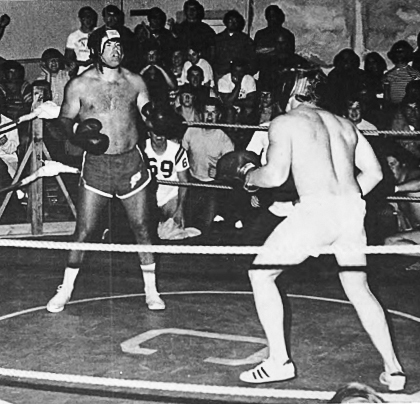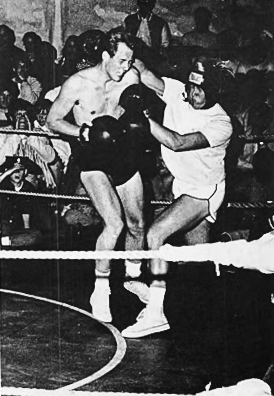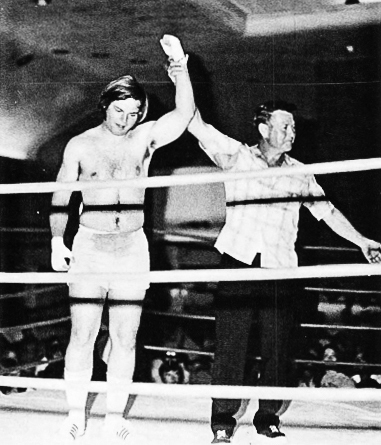
Caity Healy | Editor-in-Chief
On April 26, 2017, The Western Journal published a story titled “The Motown Throwdown,” written by our then Sports Editor, Burke De Boer. The story delved into the tradition that occurred each Spring at Western, then called Oregon College of Education, called the TKB Smoker. Hosted by the self-titled group Tappa Kegga Beer, the TKB Smoker was an annual, student-run boxing tournament that existed throughout the ‘70s. It ended for unknown reasons. But before the tradition could die out, it left one boxer famous for his tenacity in the ring: Lee Reed.
On May 7, I received a phone call from a man named Dave Clarke. He told me that he actually knew Lee Reed — and he had a lot of stories to share with me. So, he was kind enough to tell me all the memories he could recall of Reed, as a fighter and as a friend.

Clarke first heard of Reed through his brother, Robert. Robert attended Western Oregon State College in 1979, and when he came home, he told Clarke all about something called the TKB Smoker.
“He told me about a really “kick ass” guy he’d seen fight in the campus smoker — a guy named Lee Reed. Robert told me that he’d seen Lee knockout a couple of guys in less than a minute,” Clarke said. “My brother also told me that Lee taught a Taekwondo class on campus.”
From then on, Clarke wanted to become a martial arts sensation. He came to Western in 1981, and noticed a flyer posted near Barnum Hall advertising a class taught by Reed. So, he went to the Taekwondo class and met Reed first-hand.
“Class was very difficult, and Lee was demanding but always fair and interested … I just about worshipped him at the time,” Clarke said. “I didn’t get to know Lee better until I was in class for a few months.”
As Clarke began getting to meet Lee outside of his classes, he noted that Lee was a bit of a partier. Lee would host get-togethers at his apartment, where he’d cook for everyone. Clarke recalls the memory of one party.
“One day I was standing in Lee’s kitchen … he asked me to hold still for a second, so I did. He kicked off the flip-flop sandals he usually wore and did a perfect spinning wheel kick to my face. I could feel the bottom of his foot skim the top of my nose. This was in a space that was probably four feet wide — amazing,” Clarke recalled. “After that, he put his sandals back on and smiled at me. He said, ‘I just wanted to see if I could still kick a person as tall as you in the face.’”
 When Clarke hosted parties, he felt lucky if he was able to find a few spare moments with Lee to get to know him better. It would be at one of these parties that he really began to understand Lee.
When Clarke hosted parties, he felt lucky if he was able to find a few spare moments with Lee to get to know him better. It would be at one of these parties that he really began to understand Lee.
“He told me he was an orphan in Korea, and that he had to learn to fight to survive. He said … the other students would always want to fight him because of his mixed heritage.”
However Lee reached the point he was at now, Clarke only had kind words to share about him.
“Lee was always attentive to me, never once looked down on me , Clarke explained. “I sparred with Lee a few times. One time a backfist I threw touched Lee’s cheek. He paused and said, ‘That’s one of the best backfists I’ve ever seen — you should throw more of those.’”
Unfortunately. Clarke didn’t have any other information about why the TKB Smoker did come to an end, nor information on where Lee ended up. However, he knows that his memories of Lee will not fade.
“He remains in my memory as the most physically talented individual I’ve ever known,” Clarke concluded. “He was a great instructor, and I’ll always be glad to have known him.”
Contact the author at howleditor@wou.edu
Photos courtesy of WOU Archives

